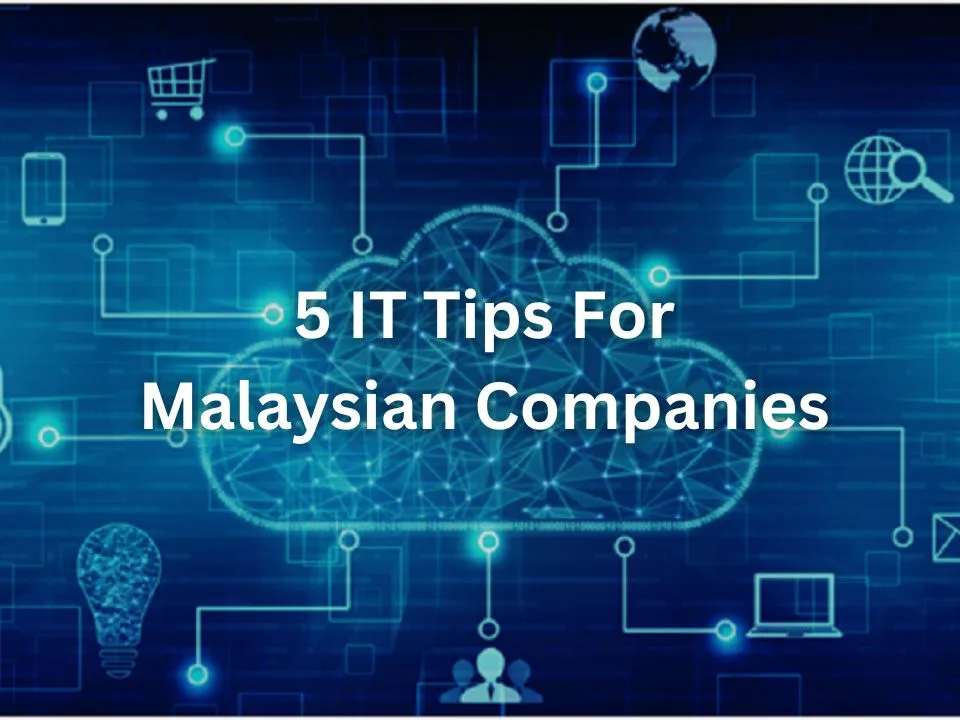
In an era where digital transformation is key to economic growth, maintaining business continuity has become a critical focus for Malaysian companies. Dr. Christoph Dietzel, Head of Global Products & Research at DE-CIX, highlights the need for businesses to reassess their IT landscapes to ensure resilience against disruptions.
This article explores the importance of robust IT systems, and the role of cloud connectivity, and offers actionable tips for businesses in Malaysia to strengthen their IT strategies.
The Impact Of IT Disruptions In Malaysia
In Malaysia and the broader Southeast Asia region, IT disruptions can have severe consequences due to the rapidly growing digital economy. According to the World Bank, Malaysia’s digital economy is projected to contribute 22.6% to the GDP by 2025. The pandemic has accelerated digital transformation efforts, underscoring the need for digital resilience.
IT failures can result in significant financial losses, with a 2023 study by the Malaysia Digital Economy Corporation (MDEC) revealing that companies could face losses of up to RM 5 million per week due to IT system failures. Business continuity planning is therefore essential.
The High Cost Of IT Failures
Supply chain disruptions and operational downtime can be catastrophic. While no measures can completely guarantee against outages, sophisticated plans are essential to maintain operations and ensure business productivity. Dr. Dietzel emphasizes the necessity of evaluating IT landscapes regularly to identify critical dependencies.
5 IT Tips For Malaysian Business

Here are 5 IT tips for Malaysian business:
1. Assess Your IT Ecosystem & Identify Key Dependencies
Managed computing, storage, and application resources are vital for business continuity. These resources help keep applications productive in the cloud and allow quick outsourcing of workloads if internal systems fail. “Evaluating which data, applications, and workloads are crucial for smooth business operations is essential,” advises Dietzel. Understanding the interdependencies within the entire IT ecosystem is key.
2. Integrate Classic Backup Methods With Hybrid Cloud Solutions
Classic backup strategies can be effectively combined with cloud solutions, especially in hybrid scenarios and on-premise landscapes. Once in the cloud, businesses benefit from maximum availability and protection. Cloud providers reduce risks by operating services redundantly across different locations. Public clouds also offer advanced technologies to combat cyber threats, enhancing overall security.
3. Diversify IT Landscapes & Ensure Redundancy
Building redundant and diversified IT landscapes is crucial for resilience. Distributing backup workloads across different systems and providers protects against failures. Redundant interconnections between internal and managed IT systems ensure continuous information exchange and synchronization.
4. Plan Your Connectivity For More Than Just Backups
To avoid malfunctions and downtime, it’s important to plan connectivity between the company and the cloud in a diversified manner. Cloud routing services facilitate seamless information processing and application operation. For example, the DE-CIX Cloud ROUTER enables data exchange between different cloud environments, separate from the public Internet, ensuring network-level interoperability.
5. Leverage IT Service Providers For Comprehensive Support
IT service providers are vital in supporting backup strategies. Small and medium-sized enterprises (SMEs), which are the backbone of Malaysia’s economy, particularly benefit from such support. DE-CIX’s partner program offers comprehensive support, price advantages, and incentives for premium partners, ensuring a robust IT ecosystem from the server room to the cloud.
Holistic Approach To IT Resilience
Ensuring business continuity in Malaysia’s expanding digital economy requires more than just data backup. A holistic approach to IT resilience, including regular testing of measures, is essential.
By following these IT tips, Malaysian business can better prepare for unforeseen disruptions, maintaining operational stability in a digital-first world.










